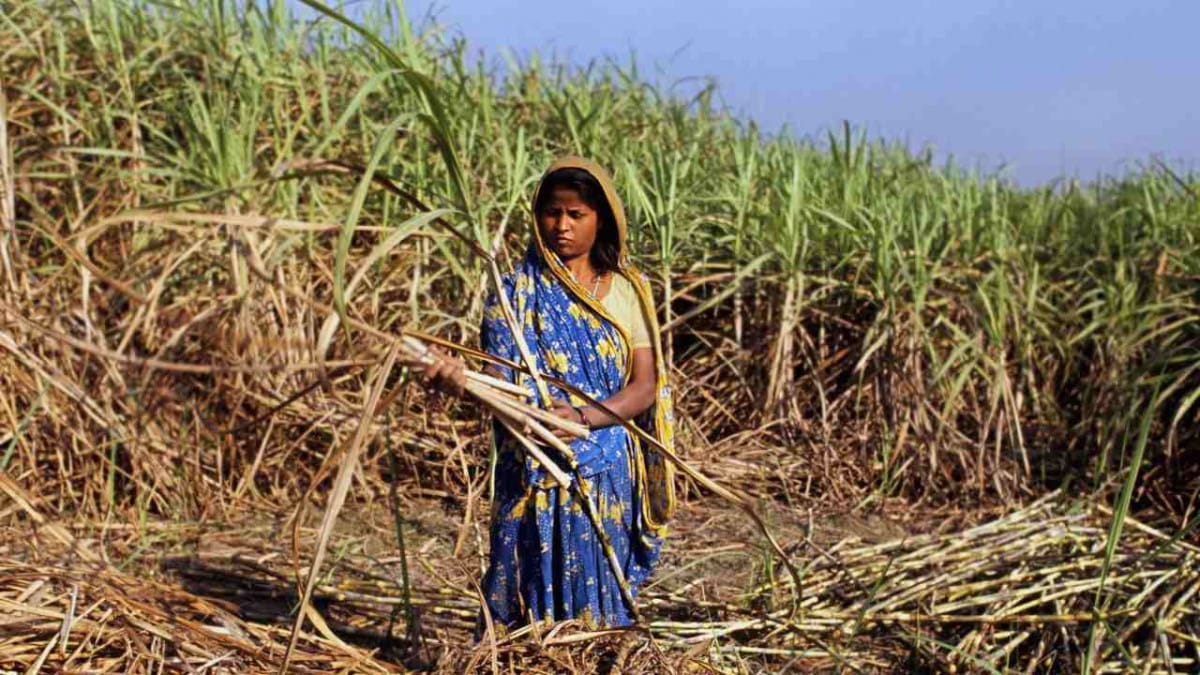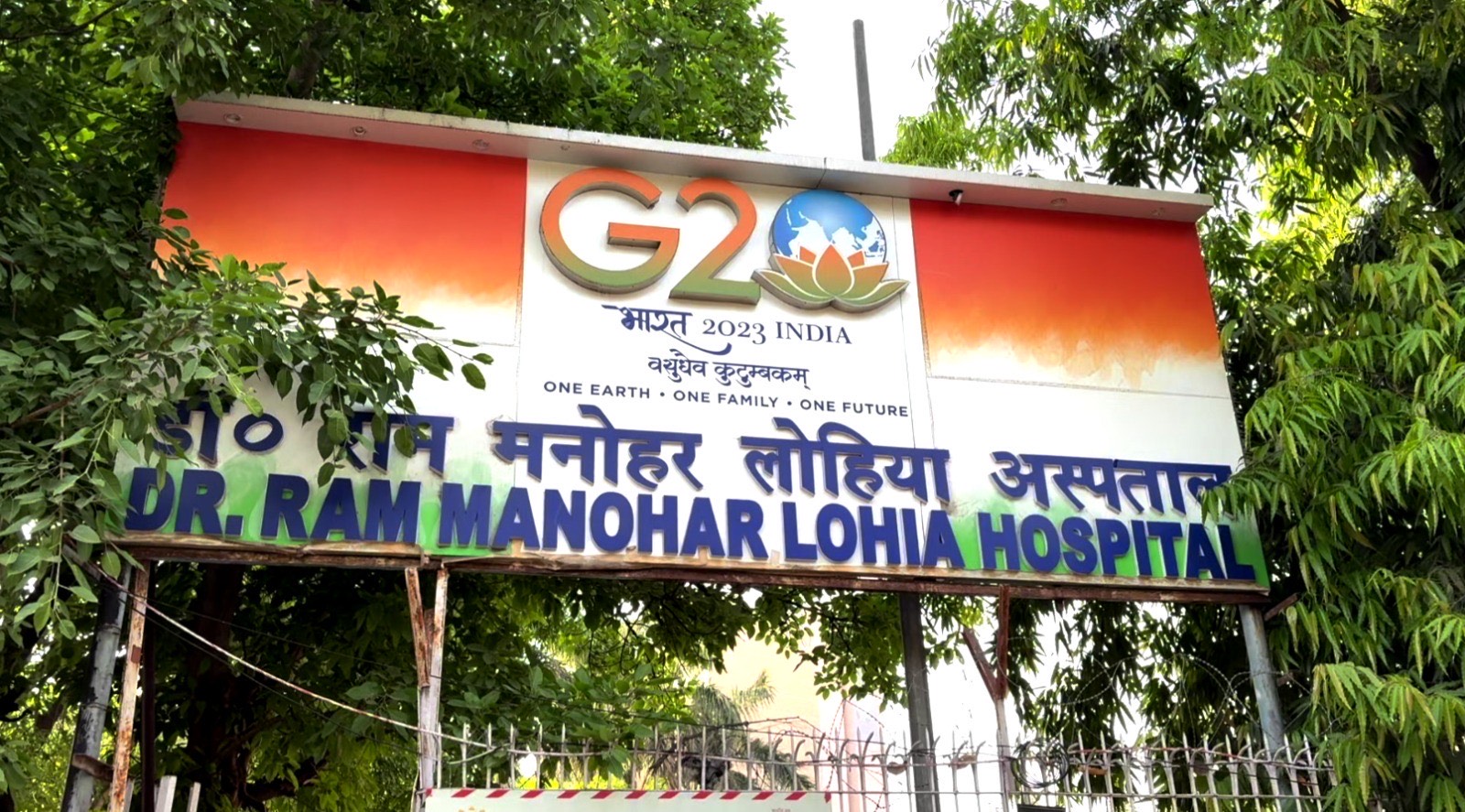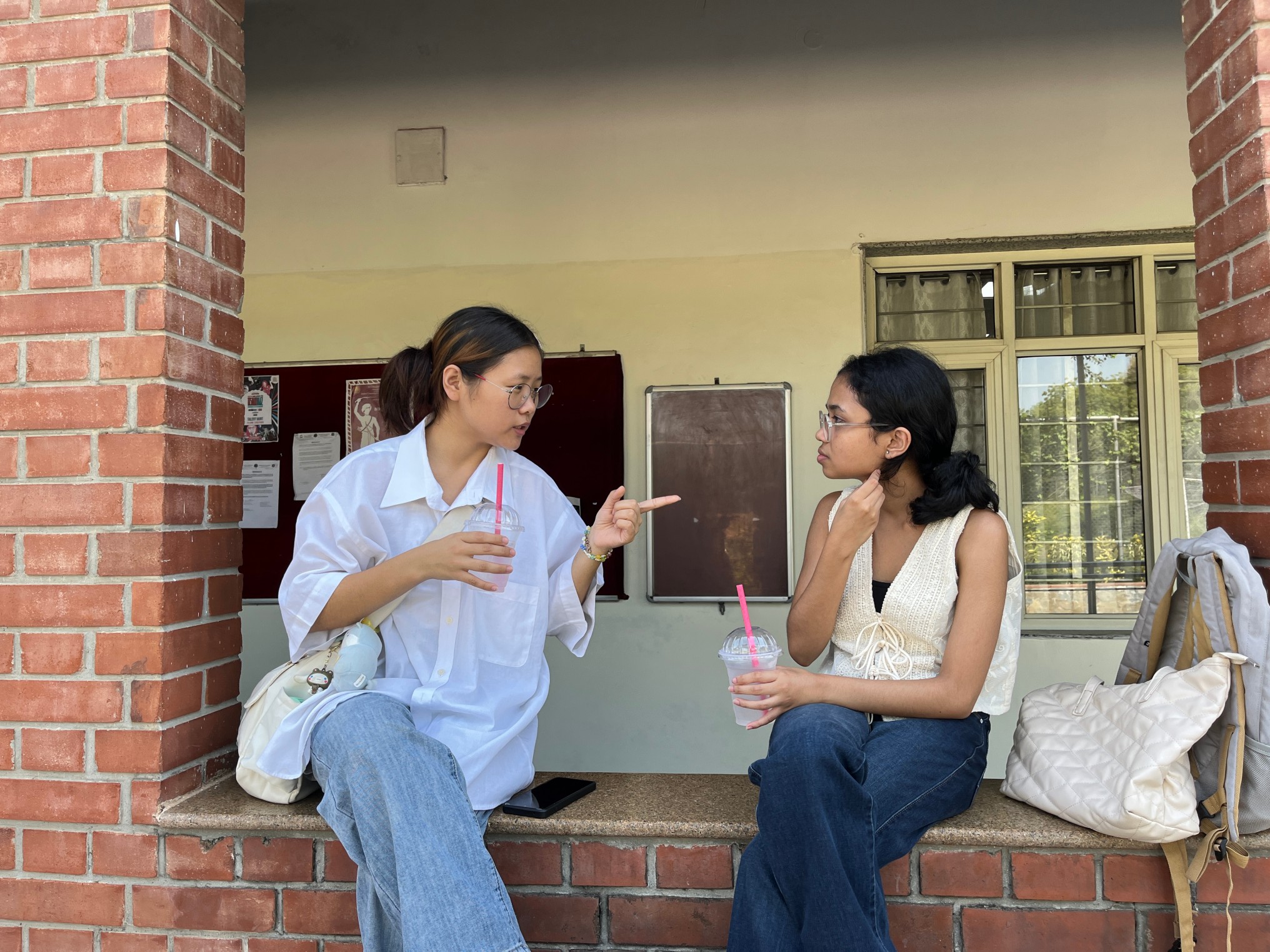In Kathoda village, Beed district, Sadhna Waghmare’s house sits at the foot of a hill—a simple structure with a yard where Jyoti Thorat lives. Jyoti’s relative had recently married, and the ritual was underway, accompanied by loudspeakers blaring songs. Unfazed, Jyoti pulled her phone from her waistband and called her husband. ‘Turn off the speaker for now,’ she instructed calmly. ‘Disconnect the power, lock the house, and send me the key. Tell them the power’s out.’
Within minutes, the music stopped, and the key was in her hand.
This moment seemed ordinary—a husband following his wife’s words—but it signalled a shift. Years ago, Jyoti wouldn’t have spoken to her husband with such assurance. Fear once silenced her, as it did many women in similar circumstances. Now, she asserted herself with quiet confidence, a change rooted in something deeper than habit.
In Kavad village, Wadwani taluka, Shanta faced a different challenge. She had gone door-to-door, inviting women to a meeting about organising sugarcane workers, selecting the Buddhist Vihara as the venue. But when they arrived, the door was locked. The caretaker, dismissive over the phone, said, ‘Women improving themselves won’t change anything,’ refusing to provide the key. Unwilling to let her efforts unravel, Shanta argued until he relented. With the key secured, the women gathered inside, their meeting a testament to Shanta’s persistence. She had coaxed them from their homes, overcoming cultural and domestic barriers, and she refused to let a locked door halt her progress.
Meanwhile, in Kotharban village, Vaishali Yadav moved through the Mangawada area, gathering details about sugarcane-cutting families. Her face flushed red as she told her cousin-in-law, ‘Tell uncle not to question what I’m doing here or there. I have work to do, and I will do it.’ When her elder cousin-in-law interrupted, loudly asking, ‘What are you doing here?‘ she deflected, promising to explain later.
She addressed him respectfully but firmly at home, ensuring her family wouldn’t hinder her efforts. A widow whose farmer husband took his life, Vaishali, faced disapproval from relatives who disliked her roaming the village. Yet she pressed on, driven by a resolve she had found within herself.
Voices of resilience
Jyoti, Shanta, Vaishali, and numerous other female sugarcane labourers in Beed and Hingoli districts possess shared experiences. Most belong to oppressed classes, are minimally educated, and have long been scorned by society. When their husbands receive advances on wages, they migrate for six months to cut sugarcane, living in inadequate and unsafe conditions. Their circumstances remain harsh, but their responses have transformed. Once silent, they are now visible and vocal—at home, in villages, fields, before supervisors, and factories. They are ready to speak and, if needed, to fight.
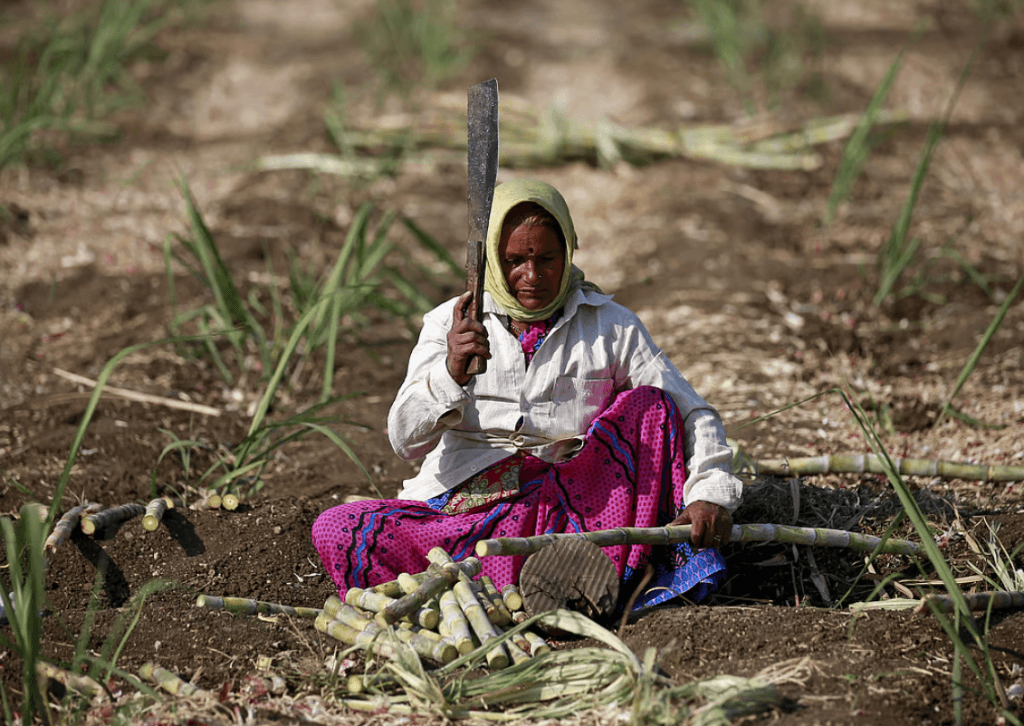
Historically, these women endured exploitation quietly, their roles confined to labour and submission. Since 2019, the Mahila Kisan Adhikar Manch (MAKAM) has worked in Beed and later Hingoli, helping them organise. The Mahila Ustod Kamgar Sanghatana (Women Sugarcane Workers’ Organisation), though young, has sparked change. These women are stepping from labourers to leaders, their journey unfolding with promise.
The Beed district has been tied to sugarcane labour since the 1970s. Hilly and drought-prone, with the Godavari River as its only perennial water source, talukas like Ashti, Patoda, Shirur, Dharur, and Ambajogai receive scant rainfall, leaving the lands barren despite agriculture. Post-independence, only the Parli taluka had a railway, isolating Beed from job-rich areas. With no industrial base, migration became routine.
Maharashtra hosts 36 percent of India’s 497 sugar factories, according to the Indian Sugar Mills Association and the state’s 2018-19 Economic Survey. These factories depend on labourers like those from Beed, who cut cane under an advance system—earnings paid upfront, repaid through work, and managed by supervisors acting as middlemen.
Jyoti began cutting sugarcane at around 14, stepping in when her mother fell ill to keep her brother in school. ‘My parents took an advance,’ she said. ‘I went instead of him. At first, I didn’t know the work. My father cut the cane; I bundled it. Climbing the planks scared me—my body trembled. By the second year, I adjusted. At sixteen, I married into a family that took an advance for the wedding. I kept working. They’d dug a pit for me before I arrived.’
Kalpana Thorat from Pimpalwadi village started after marrying in the sixth grade. ‘My parents and in-laws took advances for the wedding,’ she said. ‘I joined the fields right after. Thorns pierced my hands and feet—I was terrified.’ Advances for brides were common, ensuring labour from both sides, though women silently bore fieldwork and chores.
In Choramba village, Dharur taluka, Amrapali wore a bright yellow saree, flowers in her hair, her cheer defying her past. Married at her daughter’s current age—ninth grade—she left school behind. ‘My in-laws promised I’d study,’ she said. ‘Leaving home ended that.’ She later realised her suffering’s depth through the organisation. ‘They never hit me, but the taunts were constant. Without it, I wouldn’t have seen how much we endured.’
Trishala Mhaske, cutting cane for 35 years since seventh grade, shared a grim memory. ‘During my second pregnancy, I went into labour in the fields. A woman died in childbirth nearby—her body was burnt outside the village. It was winter; my husband told me to sleep by the fire. The next morning, he said to close my eyes, claiming it was a dead animal. It was her. I cried, fought him, and begged to stop this work. But what choice did I have?‘
Female sugarcane labourers’ daily struggle
Living in 10×10 huts with no water or toilets, they carried essentials in trunks—utensils, bedding, and rations. Women finished chores before dawn to avoid men’s eyes. Now, through the organisation, they demand better.
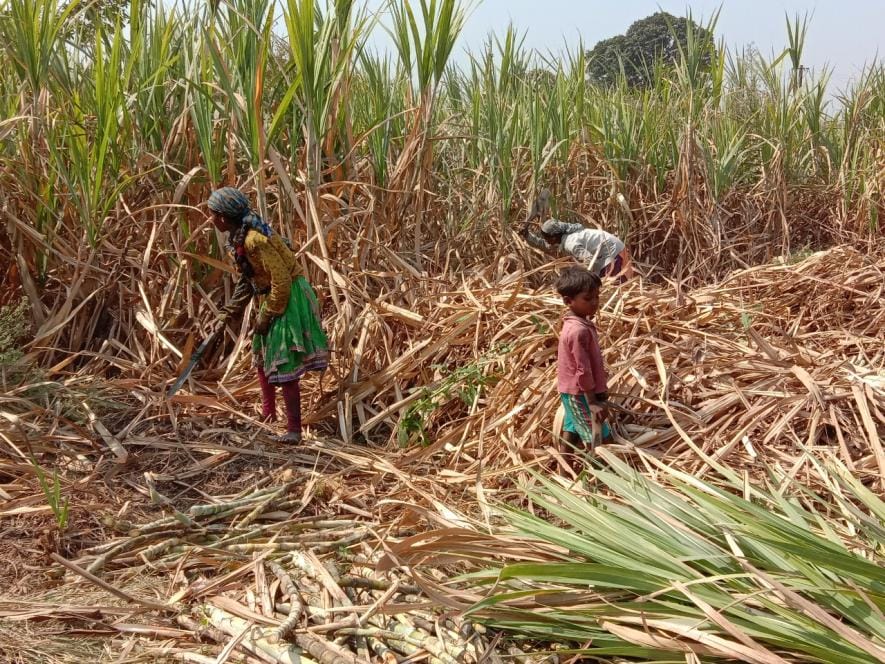
Sadhna said, ‘They’d drop us near any waterhole. We didn’t know we could ask for clean water or decent shelters. Now, we refuse to leave the truck without them.’
Kalpana added, ‘For 25 years, I toiled for my family. Three years ago, I joined. I didn’t even know my body needed care. We bathed in the dark, pouring water over our clothes. Now, I build mat bathrooms for privacy.‘
Both dream of homes. Kalpana’s half-built house, funded by a three-lakh-rupee advance, needs four more years of labour to repay. Sadhna built two rooms with an advance, needing another for a slab—another year of gruelling work. ‘I don’t want to cut cane,’ Kalpana said, ‘but this house must be finished.’ Advances trap them—loans taken for homes, weddings, or emergencies in jobless villages. These loans are controlled by men, leaving women uninformed.
Yet, these women are discovering themselves amid adversity—a testament to their resilience and unyielding spirit. Aruna from Jalaldabha, Hingoli, told her supervisor, ‘Don’t give it all to my husband. He’ll waste it on alcohol or gambling. I won’t work for free.’ She refused to board the truck until paid directly. Deepa Waghmare from Kamkheda insisted, ‘The advance comes to me, or I don’t go.‘ After resistance, the foreman relented, paying her ₹20,000 at home in front of her husband. Amrapali said, ‘We never dared demand money. If we asked, they’d say, ‘What’s your concern?’ Now, we claim our share—for kids, homes.’
The organisation taught them their labour’s value. Sadhna’s group recovered ₹20,000 each by tracking wages. Financial clarity empowered them to challenge men’s control. Amrapali noted, ‘Men do the minimum—groceries—then spend on alcohol, tea shops, and friends. They don’t see our effort.’ Though true financial independence remains distant, they’re laying the groundwork, asserting their role as earners, not dependents.
Emerging empowerment
Health issues surfaced in 2019 when the media reported hysterectomies among Beed’s women cutters, driven by lost wages during menstruation. The Ayurmangalam scheme followed, offering checkups, but implementation lagged. Only 40 percent of 254 women surveyed by MAKAM activist Kamini Pawar had haemoglobin tests; none received post-harvest checks. The organisation stepped in, raising health awareness.
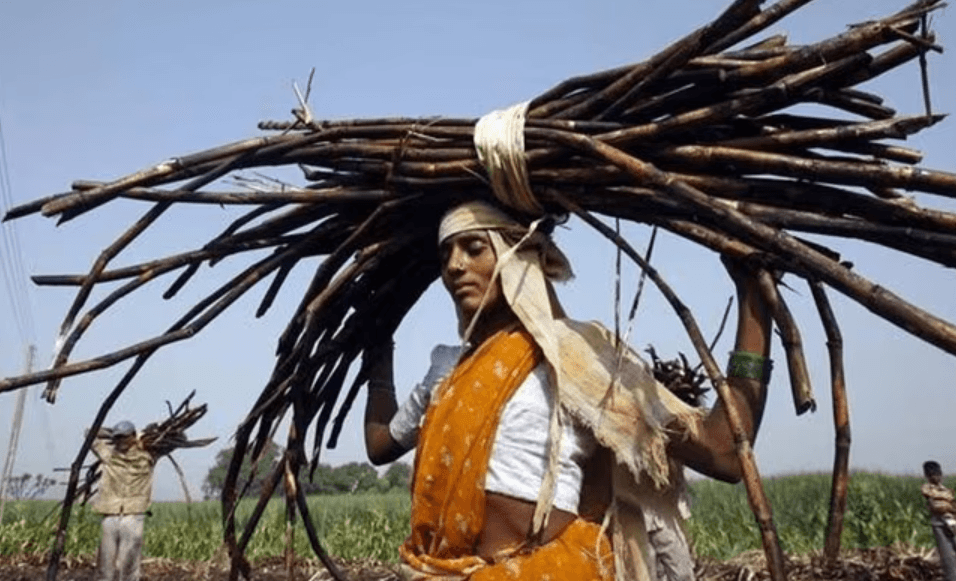
Kalpana said, ‘I didn’t know about my own body. Even after four children, I didn’t understand what a uterus was. We were unaware of our own body parts. We used cloth torn from field clothes for periods. Now, I teach my daughters about pads.‘ Words like “body,” “menstruation,” and “sanitary napkins” remain unfamiliar to many women. Advertisements reach villages but fail to inform, leaving a gap.
Trishala’s back injury from a fall and Deepa’s kidney stones from dehydration show how health suffers in the fields. Vaishali Yadav organised women in Birakutwadi when a cutter’s leg injury revealed no insurance. After a two-day work halt, she secured ₹25,000 for the woman. Following the 2019 uterus issue, the district health department launched the Ayurmangal Scheme for sugarcane workers in Beed, including health camps for women.
Initially unorganised, the camps began after leaders like Jyoti, Deepa, Trishala, Manisha, and Chhaya pressed health officials with written requests. Their efforts led to camps across the Beed villages. Aruna in Hingoli ensured vaccinations and nutrition for her group.
Without official recognition, their problems persist. Women argued that with hundreds migrating annually, records should track who leaves and where they go. They demanded persistent follow-up; identity cards, mandated by 2019 and 2021 government resolutions, were secured. Trishala and others collected documents house-to-house, overcoming scepticism.
On September 17, Marathwada Liberation Day, they held village meetings, ensuring registration. These cards mark them as labourers, not just wives, opening access to benefits.
The Mahila Ustod Kamgar Sanghatana didn’t just enter these women’s lives—it grew from within them, shifting their perspectives and attitudes. It binds them, not just in bundling sugarcane, but in bundling their strength. Trishala, illiterate, proves herself through action. Sushila finds relief from an abusive home. Rani’s husband now helps with chores, respecting her role.
Kalpana regrets her daughter’s early marriage but ensured her education, recording every detail herself after 25 years without a pen. Their voices rise, their lives intertwined with an organisation born from their struggles, pushing for a future they’re only beginning to claim.
